SIRC at 50: A half-century of shaping Canadian sports through knowledge and collaboration
November 27, 2023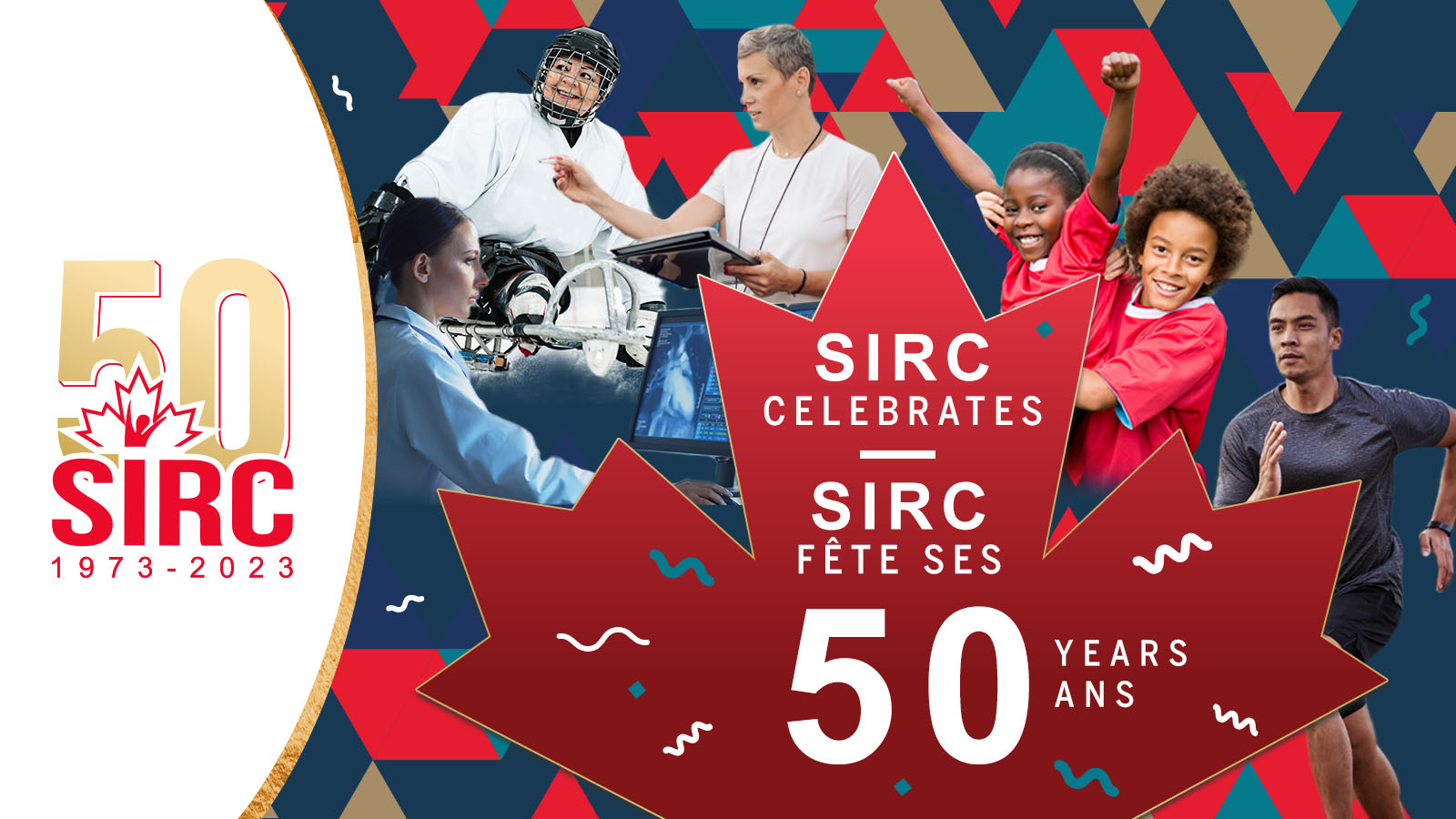
The Sport Information Resource Centre (SIRC) has been a pivotal organization in Canada’s sporting landscape for half a century. Founded with the vision to provide valuable research and knowledge to support the sport community, SIRC along with its partners have played a role in shaping sport in Canada. In this exploration of SIRC’s journey, we’ll look at its history, evolution, and contributions it’s made to sport over the past 50 years.
During that time, SIRC has played a significant role from its start as a national resource library, to the creation of an internationally recognized database, to its evolution into a global knowledge hub. Throughout, SIRC has been at the forefront of facilitating research, discussions, and policy development in the world of sports. And SIRC’s efforts create inclusive spaces for all to participate in sport, which is the essence of sharing knowledge.
“SIRC has had a very large impact on the Canadian Sport System. I think it has really transformed how we access information, and how the information and data can be used to support all aspects of sport leadership, governance, and how we make decisions. I think it has set a benchmark for data, information, and knowledge access.” ~ Karen O’Neill, CEO of the Canadian Paralympic Committee
How did SIRC become the respected organization it is today? Let’s look at the last 50 years, starting with how it all began.
1970s to 1980s: Early growth and evolution to national sport library
The SIRC’s rich history dates back to its incorporation in 1973, when a group of visionary individuals established it. Among those individuals were Abby Hoffman, former 4-time Olympic track and field athlete and the first woman director general of Sport Canada, and Geoff Gowan, a former sports broadcaster, and sport executive at the Coaching Association of Canada (CAC). Their passion for promoting research and disseminating information in the field of sport helped SIRC evolve into a vital resource for the Canadian sports community.
In its formative years, spanning the 1970s and 1980s, SIRC embarked on a dual journey of early growth and progressing from a collection to a physical library. During this period, SIRC dedicated itself to collecting and disseminating information vital to sports science, coaching and athlete development. The centre swiftly became a go-to resource for coaches, researchers, and sport organizations in search of evidence-based practices and the latest advancements in sports science.
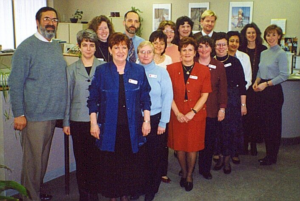
As part of its commitment to become a comprehensive hub, Gilles Chiasson, CEO for SIRC’s first 20 years, guided the transition from a simple collection of key coaching resources within the CAC. Under his leadership, SIRC was established as an independent national sport library at 333 River Rd, Ottawa, where it co-existed with other national sport organizations. This central location made it accessible to the sports community and it thrived as a fundamental resource for coaches, athletes, administrators, sport medicine professionals, and researchers.
At the time, it also served as only 1 of 3 automated systems for sport documentation globally. SIRC’s data bank was among the top 3 largest in the world with 30,000 pieces. The other 2 major sport documentation centres were housed in Leipzig and Cologne, Germany (Canadian Sport History, 1978).
“I think SIRC is genuinely a vital part of the system. The ‘simple’ task of collecting information helps democratize that information, instead of information being squirrelled away who knows where. It instead is collected and made available to the system at large. This is an invaluable tool for improvement.” ~ Peter Lawless, sport lawyer, high performance coach, Vice President of the Canadian Olympic Committee, Ombudsperson of the Canadian Paralympic Committee and CEO 2025 Invictus Games
1990s to 2000: Technological advancements and knowledge excellence
Sport Thesaurus and SportQuest: The 1990s saw SIRC further embrace technology’s potential. SIRC incorporated digital platforms and online resources to make sport information more accessible through its internationally recognized SportThesaurus (over 27,000 standardized terms), and its innovative websites Canadiansport.ca and SportQuest.ca. The organization expanded its reach, engaging with a broader audience, establishing itself as a pioneer in knowledge translation and using technology for sports knowledge dissemination.
Expansion of SportDiscus: SIRC made significant strides in information accessibility by creating and expanding the SportDiscus, a premier research database in the fields related to sport and sport science. A collaboration with international sport information partners expanded the depth and breadth of resources available through SIRC, allowing researchers, practitioners, and enthusiasts to access a vast repository of scholarly articles, journals and research findings related to sports.
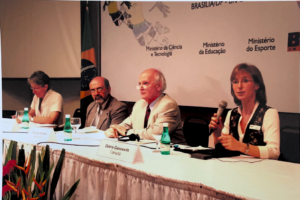
By this time, SIRC had a reputation as the world’s leading educational resource for sport material. As a result, its SportDiscus was the only sport database recognized by UNESCO and was used in 49 different countries as the authoritative reference for sport-related information and research. Additionally, global recognition by the International Association of Sport Information (IASI) encouraged more than 32 member countries to submit their research material references to SIRC for inclusion in the database. This coordinated effort, helped ensure that Canadians benefitted from domestic as well as comprehensive international content in the database. The same benefits applied to sport researchers worldwide.
Debra Gassewitz, President, and CEO, led this innovative evolution, marking SIRC’s shift toward the sharing of knowledge excellence. From that point on, the institution would evolve into a critical asset for both the Canadian and international sport ecosystem.
“SIRC set the standard for evidence-based decision making in the Canadian Sport System and indeed internationally. The ability to access research and enhance knowledge transfer to performance and development has been entrenched for decades.” ~ Lorraine Lafreniere, CEO of the Coaching Association of Canada
2000s to 2010s: Fostering collaboration and partnerships
In the 2000s, SIRC strengthened its collaborative efforts by establishing partnerships with various national and international sports organizations, academic institutions, and government agencies. For example, partners included the University of Calgary, University of Manchester, International Olympic Committee, l’Institut National du Sport, de l’Expertise et de la Performance (INSEP), Australian Institute of Sport. These collaborations enhanced the centre’s ability to collect, analyze and share information, a dynamic network within the sports community.
Essentially, SIRC aimed to explore the realms of research and information in an effort to help solve problems.
“This one athlete was having a medical concern that was impacting their ability to perform at a high level. I reached out to Debra, and she did whatever magic she does behind the curtain and she provided me, and more importantly my athlete’s treating physicians, with a number of extremely relevant scientific or medical articles that dealt with the exact same issue my athlete was dealing with. It was incredibly useful on a number of fronts. First and foremost, it immediately gave the treating physicians a pathway for treatment. Second, and it’s hard to overestimate the importance of this, the information gave my athlete confidence that what was happening could be resolved and resolved successfully so that they could get back to performing at the highest level.” ~ Peter Lawless on how SIRC helped solve a problem
SIRC’s job board inspiration came from similar reflections on what the sector needed and how to fill such gaps. This time it landed on employment in the sport sector. By 2001, SIRC created the job board as a part of its platform that aimed to cater to the unique job market of the sports and recreation industry in Canada. This focused job board was the first of its kind in Canada. Tens of thousands of postings later, the job board is the go-to resource for both employers and jobseekers for any positions within Canadian sport. Job postings have covered coaching, staffing, hosting, board, and volunteer roles, among others.
2020s and beyond: Continuing to move forward
Today, SIRC stands as the essential hub for sport knowledge in Canada. It embodies a commitment to sport and excels at seeing the bigger picture, balancing rigour with reality. As the first stop for all things sports-related in Canada, SIRC continues to serve both sport organizations and individuals dedicated to the development of sport throughout this nation.
With a mandate to offer knowledge, evaluation, connections, and outreach, SIRC’s goals aren’t just a mission statement. Instead, they’re a lived reality, where SIRC actively shares knowledge and creates welcoming spaces for everyone involved in the world of sports.
For 17 years, SIRC has hosted the Sport Canada Research Initiative (SCRI) Conference. At SCRI, people who work, play and volunteer at all levels of sport (from community clubs to national sport organizations) gather together with sport researchers and policymakers to share knowledge and make new connections. The conference format is specifically designed to foster collaboration and engagement.
SIRC’s expertise lies not just in gathering knowledge but in mobilizing its extensive network of partners to disseminate credible information to a large and precisely targeted audience, maximizing the impact of their content. Through the Canadian Sport Daily newsletter, SIRC provides knowledge, the latest research, news, and job postings. The newsletter reaches Canada’s sport and physical activity sector from coast to coast to coast, including national, provincial, territorial and community level organizations. In the daily newsletter, Knowledge Nuggets are provided for a source of insight, leveraging the latest in research findings, promising practices, and practical resources.
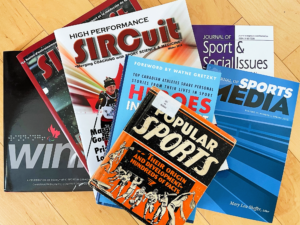
For a deeper dive into relevant and timely topics that help advance the Canadian sport and physical activity sector, there’s the SIRCuit. Distributed quarterly, the SIRCuit is Canada’s leading sport-related e-publication, delivering evidence-based insights and learnings from a variety of credible sources.
SIRC’s work is anchored by 3 pillars. The first pillar is knowledge excellence. The second, growing the network and expanding connections within the sport community. And the third is a commitment to forward-thinking approaches to advance the landscape of sports in Canada. SIRC is much more than an information storehouse, it’s a force propelling the Canadian sporting ecosystem toward greater connectivity and knowledge.
“SIRC occupies a much-needed position within the sport sector, that of a coordinator and disseminator of information.” ~ Milena Parent, professor in Human Kinetics, University of Ottawa
Key initiatives
SIRC hasn’t only been a repository of respected knowledge but also a catalyst for change in the sports community. Here are several of SIRC’s initiatives that highlight its commitment to sport:
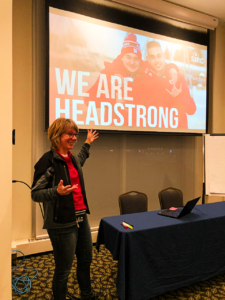
Concussion awareness: SIRC played and continues to play a pivotal role in raising awareness about concussions in sports. As high-profile cases like those of Eric Lindros and Sidney Crosby brought this issue to the forefront, SIRC worked alongside stakeholders, including the federal, provincial and territorial governments, to facilitate conversations and develop educational materials. Concussion Awareness Week in Canada was born out of these efforts, which contributes to increased awareness and safety measures in sports. During awareness week in September 2023, SIRC reached 5 million people in the sport community.
“SIRC’s ability to facilitate nation-wide discussion on important issues that are part of the fabric of the Canadian Sport System is critical. The Canadian Sport Policy and Safe Sport are two primary examples. The organization’s ability to communicate relevant, timely and evidence-based decision making is a hallmark of leadership.” ~ Lorraine Lafreniere
Safe Sport: Recognizing the importance of safe sport environments, SIRC collaborated with the Canadian Centre for Ethics in Sport (CCES) to develop the initial Universal Code of Conduct addressing maltreatment in sports (UCCMS v 5.1). This initiative aimed to create safer spaces for participants, athletes, coaches, and officials. SIRC’s role in facilitating these conversations laid the foundation for the creation of the independent safe sport body, Abuse Free Sport. That body is within the Sport Dispute Resolution Centre of Canada, which involves all national sports organizations, including SIRC. The work continues as SIRC actively promotes safe sport, best practices, guidelines, and practical tools to further the necessary dialogue to ensure everyone can participate in sport, safely.
Women in sport: SIRC has been dedicated to promoting gender equity in sports, aligning with the Government of Canada’s 2035 target. Since the inception of SIRC, it has actively engaged in initiatives such as participating in World Conferences on Women in Sport (2002), conducting gender-based literature reviews, and launching educational campaigns. In 2022, with government support, SIRC introduced a bilingual public awareness campaign: “Mom’s Got Game, Vas-y Maman!” That campaign aimed to encourage and support women to stay active after having children. Additionally, SIRC initiated the Experts in the House webinar series, featuring leading experts in sports who focus on vital topics like Girls and Women in Sport. Those webinars have addressed issues such as coaching, career paths, sport participation and mental health. These efforts underscore SIRC’s ongoing commitment to advancing women’s participation and representation in Canadian sports.
Policy development: Engaging Canadians
SIRC’s involvement in policy development has also been key to shaping the future of Canadian sports. In 2010, the organization conducted extensive consultations across the country, engaging Canadians from various backgrounds to understand their vision for sports. This resulted in the creation of the Sport Policy in 2012.
“Debra has set the standard of engagement and listening with purpose that has provided space for Canadians from coast to coast to coast to be heard on the critical issues of the day.” ~ Lorraine Lafreniere
Little more than 10 years later, SIRC once again led extensive consultations. This time for the development of the third Canadian Sport Policy, engaging stakeholders across Canada to ensure that the future of sports aligns with this nation’s aspirations and needs.
Conclusion
As SIRC celebrates its 50th anniversary, its remarkable journey stands as a testament to the visionaries, leaders, and dedicated teams that have shaped it into the institution it is today. And as its next phase of growth begins, SIRC will continue to inspire confidence through knowledge excellence, ensuring that Canadians can participate in sports safely, inclusively, and with the support of a knowledgeable community.
“I’m profoundly grateful for the incredible colleagues within SIRC, the sports community and throughout the country, who have and continue to inspire and collaborate with us. In this ever-changing environment, it’s so important to never stop learning, to actively listen, and to continuously evolve alongside those who share our dedication to advancing positive experiences in the world of sports.” ~ Debra Gassewitz, CEO of SIRC
About the Author(s)
Debra Gassewitz, President & CEO, has led Canada’s Sport Information Resource Centre (SIRC) for over 25 years, transforming it into a dynamic knowledge hub. Achievements include digitizing extensive sport research, negotiating major database sales, and establishing global partnerships. A key player in shaping Canada’s sport policy, Debra is a member of numerous federal provincial territorial workgroups, as well as a Member of the Canadian Olympic Committee. Her expertise in stakeholder communications and digital technology has been pivotal for sport organizations. Committed to research and education, Debra sets a high standard for SIRC’s services in the Canadian sport system.
Paula Baker, M.Sc., is the managing editor at SIRC. In this role, she draws on her 20 years of experience as a journalist, and as a former exercise physiologist, to bring sport research, knowledge, and the occasional human-interest story, to our readers.
The information presented in SIRC blogs and SIRCuit articles is accurate and reliable as of the date of publication. Developments that occur after the date of publication may impact the current accuracy of the information presented in a previously published blog or article.
